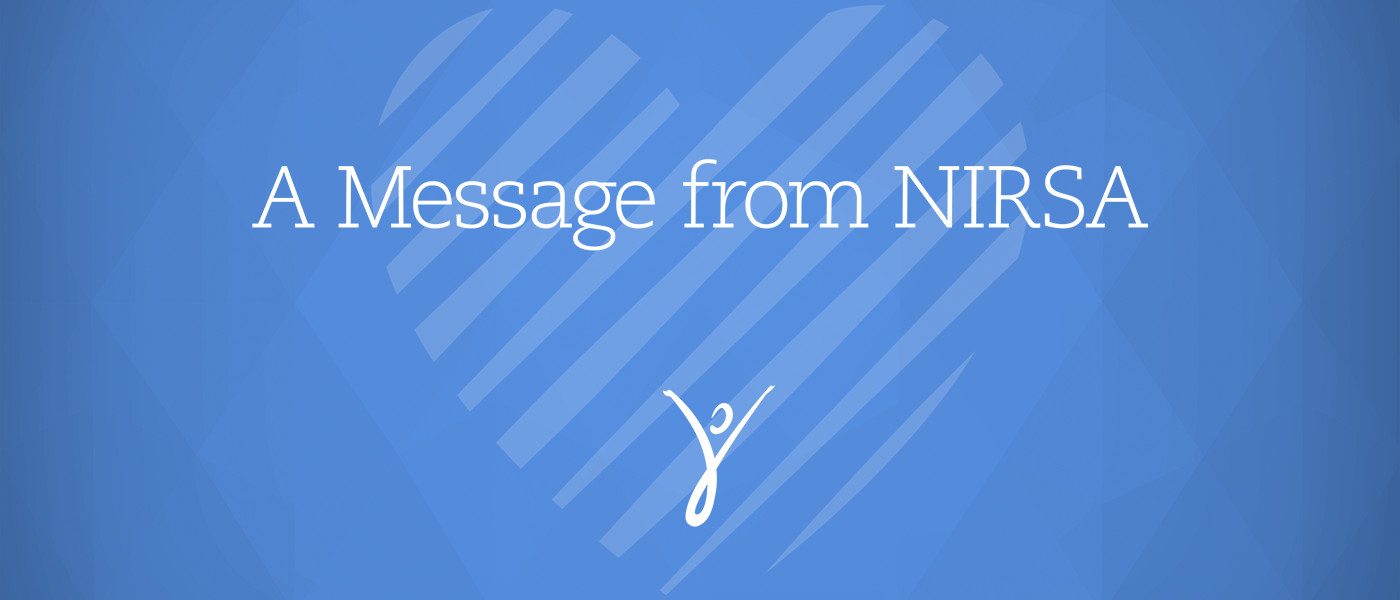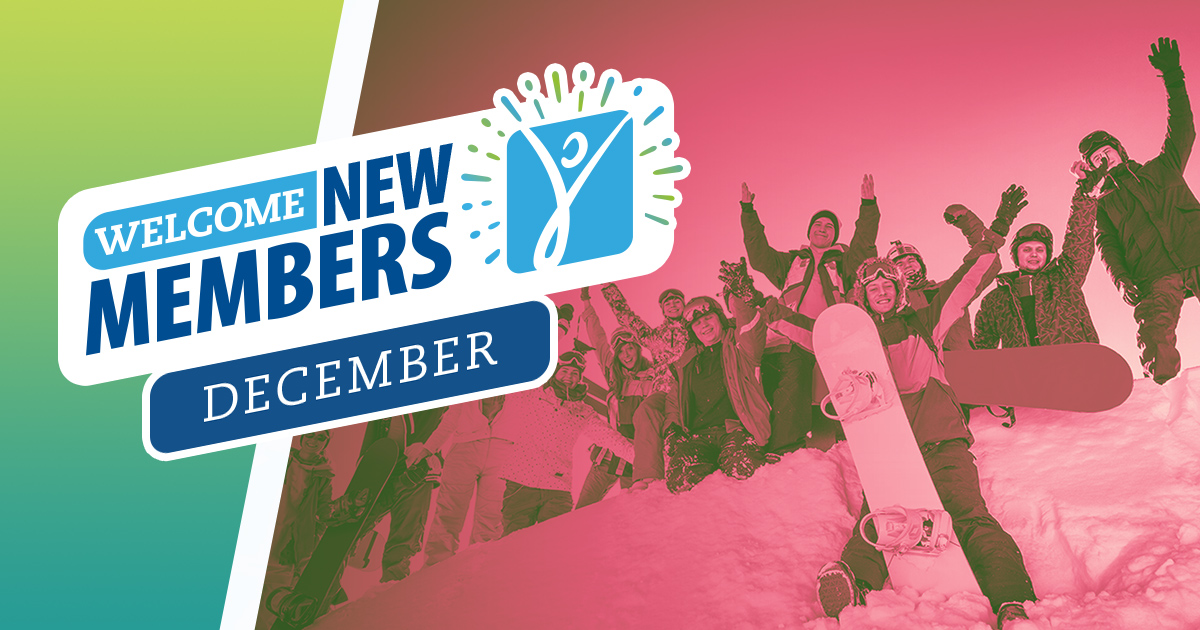For higher education professionals, this is usually the most optimistic and exciting time of year. We prepare to welcome new and returning students and staff. We begin to onboard and train new teams of staff to best serve and educate our students. We anticipate the success of new programs and initiatives. Yet, those typical emotions are tempered as we reflect on last week’s deadly violence and vile display of hatred and bigotry in Charlottesville, Virginia.
These hate groups – the KKK, neo-Nazis, and white supremacists – stand in direct opposition to NIRSA’s values and the principles of inclusion our Association was founded on, as well as our vision to inspire the development of healthy communities worldwide. We condemn their actions and their message in the strongest possible terms.
However, as several of our campus leaders have alluded, outrage is easy – creating change is harder. So we want to encourage NIRSA members to draw on their resilience to recapture the energy and feelings of possibility the start of a new academic year brings and actively commit to creating change where you can – with your staff, within your facilities, and for the over 10.6 million students that will access NIRSA members’ recreational services this year. Collegiate recreation, due to the significant percentage of students we serve on our campuses, has a unique opportunity – and a real responsibility – in this pursuit.
Resources for how to get started
Where Respect Happens
NIRSA, as a member of the Student Affairs in Higher Education Consortium (SAHEC), participated in the launch of the Where Respect Happens campaign in May. This grassroots campaign recognizes that self-respect and respect for others are at the core of student learning and development. It is also a chance to collaborate across campus with student affairs peers. Knowing that they’re in a place where respect happens, can make an immeasurable impact on students as they navigate times of uncertainty.
There is no one right way to put this message into action on your campus; however you choose to pursue it, though, we hope you’ll share it with your NIRSA and student affairs peers – post on social media and use the hashtag #whererespecthappens.
Need an idea to get started? Check out this video from Xavier University, which will be shown to all incoming students during orientation.
Resources from the Equity, Diversity, and Inclusion Commission
Since January, NIRSA’s Equity, Diversity, and Inclusion (EDI) Commission has been actively compiling a growing collection of social justice resources. If you’re struggling with knowing how or where to begin talking with students and staff on a particular topic, these resources can help.
In fact, the most recent edition of resources is intended to provide members with ready-to-go activities and training materials to support students and staff and to get dialogue started on these difficult, and often emotive, topics. It includes:
- “Writing for Change: Raising Awareness of Difference, Power, and Discrimination”
- “Common Beliefs Survey: Teaching Racially and Ethnically Diverse Students”
- “Teaching in the Current Political Climate”
How to teach the practice of civil discourse
Motivated by the desire to help campus recreation professionals become better facilitators of civil discourse, the NIRSA Assembly has compiled a series of resources entitled “How to Manage and Guide Civil Discourse in Collegiate Recreation.”
The resources, meant to assist departments as they work towards more deliberate conversations, utilize a variety of mediums and are divided into three categories:
- Skill development for difficult conversations
- How to moderate/facilitate/guide difficult group discussions
- Suggestions on topics that often result in difficult conversations
The Assembly also hosts a public Facebook group, meant to provide campus recreation professionals a place to dialogue on current issues, as well as discover new perspectives and insights on hot topics.
Continue to learn from each other
It’s no secret NIRSA’s best resource is – and has always been – its members. Whatever an issue’s topic or scope, members’ eagerness to share feedback, best practices, and how-tos continues to make this Association great.
Often members’ stories are written up and captured in the NIRSA Know for all to benefit from. One powerful example particularly relevant to having difficult conversations was shared by Andrea Snead, Sport Clubs and Adaptive Recreation Coordinator at University of Central Florida. Her article details how UCF’s Recreation and Wellness Center worked with campus partners to host the campus’ very successful first community policing discussion, and it concretely demonstrates the ‘how’ and ‘why’ for campus recreation to get involved in complex issues for the betterment of the whole student body.
We also encourage you to post your questions, concerns, and experiences in NIRSA’s Connect Community. Through this discussion group, you have an additional 4,500+ colleagues at your fingertips.
As NIRSA’s President and Executive Director we want to continue to voice our sincere offer to listen to any members who wish to be heard. And we continue to believe in the power of the Humans of NIRSA to create sustainable, healthy communities. Peace, love, and NIRSA.
- For more information – or to share the work your campus is doing to promote respect, further dialogue, and end hate – please contact NIRSA Director of Advocacy & Strategic Partnerships, Erin O’Sullivan.
Bill Crockett, RCRSP is currently the Executive Director of Campus Life Services at the University of Maryland Baltimore and the President on the NIRSA Board of Directors. He can be reached at president@nirsa.org. Pam Watts is NIRSA Executive Director. She can be reached at pam.watts@nirsa.org.







